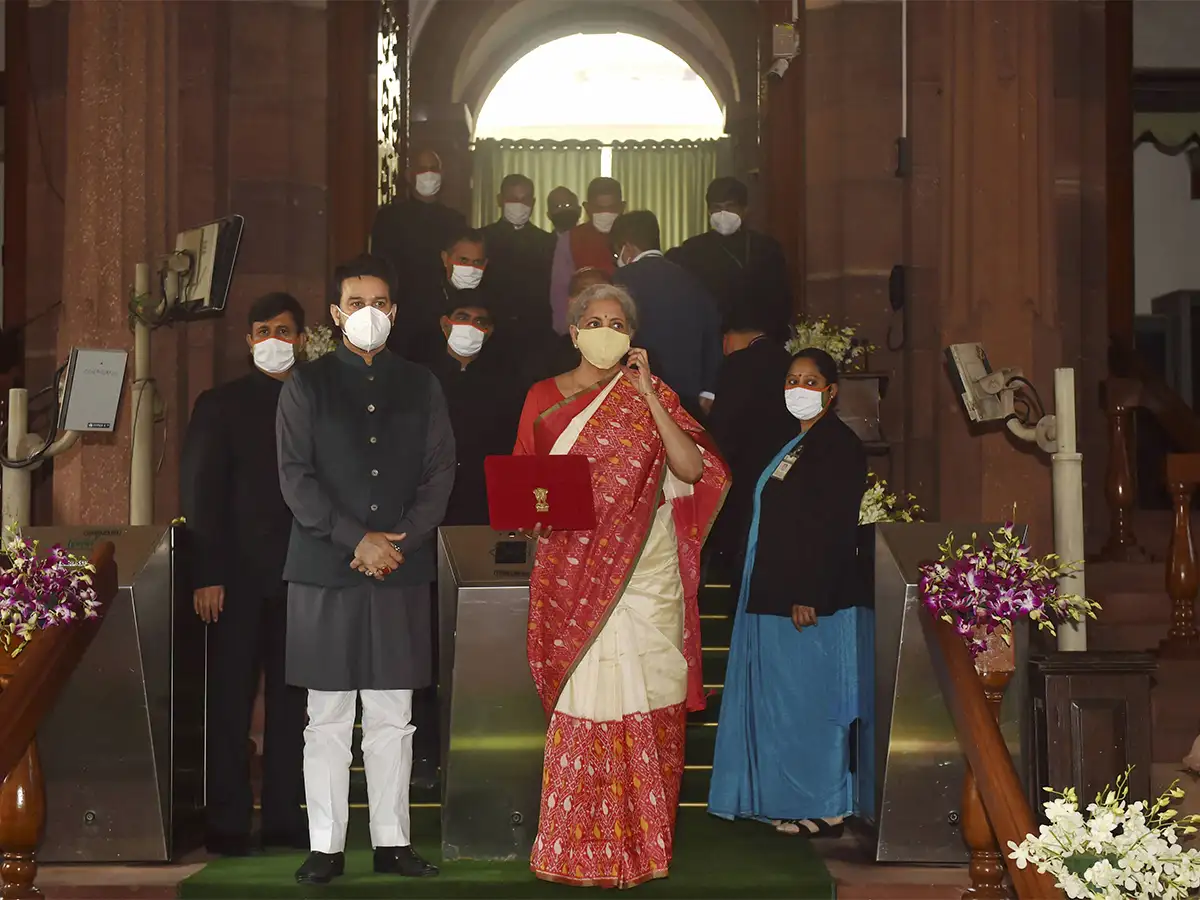
Feb 2: A mammoth spending plan of almost $500 billion announced by Prime Minister Narendra Modi’s government is expected to jump-start growth in an economy battered by the coronavirus pandemic, but may not be enough to make a dent in the rising unemployment and poverty India has battled.
Finance Minister Nirmala Sitharaman on Monday unveiled a national budget that will cause the fiscal deficit to balloon to a much higher-than-expected 9.5% in the current year ending March on the added expenditures. Stock market investors cheered the plan, hoping for an economic resurgence and celebrating the absence of new taxes on the wealthy and corporations, while bonds tumbled on worries about the record deficit.
Still, the budget -- among India’s most highly anticipated and closely watched annual events -- didn’t have major proposals to address the job losses, hunger and rising pressures on the farming and rural sectors. In fact, the ballooning deficit will force the Modi government to curb spending on some rural programs in the coming fiscal year.
Modi cut back the budgetary allocation for rural development, which includes a jobs guarantee program, spending for rural roads and pension for widows, by 10% to Rs 1.95 lakh crore in the year starting April. That will help him boost investments in creating assets by 26% and keep the overall spending little changed at nearly Rs 35 lakh crore ($480 billion) from a year ago.
“The central intent has been to use expansionary fiscal policy to support growth, sidestepping concerns over debt sustainability and sovereign rating,” said Abheek Barua, chief economist at HDFC Bank Ltd. “That said, the budget does not adequately address concerns over inequitable growth which has been a worry across the globe due to the pandemic.”
India’s budget offers a look at the new challenges emerging nations must now contend with after coronavirus lockdowns upended the lives of daily wage earners worldwide. Unemployment in India reached 9.1% in December and 85 million people are estimated to have fallen into the ranks of the newly poor, particularly migrant workers who returned to villages.
While the government didn’t make major changes to personal income taxes it also didn’t give much to the middle class and the poor, who were expecting some relief from the budget, Barua said.
The government has “stretched its resources to deliver for the most vulnerable sections of our society – the poorest of the poor,” Sitharaman said in her budget speech. Spending on infrastructure development will again generate employment, she said.
What Bloomberg Economics Says...
“The budget plans should deliver a strong fiscal boost that is likely to further strengthen the recovery. The favourable shift in the composition of spending toward capital expenditure raises the chances of virtuous cycle of high growth, enhanced tax buoyancy and a reduction in fiscal deficits taking hold over the medium term,” said Abhishek Gupta, India economist.
The new proposals also come as the government faces widespread anger from farmers, whose protests against market reforms overwhelmed parts of the capital New Delhi last week. Despite that there were no measures announced for them in the government’s plan.
The proposed increase in capital expenditure is coming at the expense of non-capital expenditure, keeping aggregate spending the same, Amit Basole, who teaches at the privately run Azim Premji University, said. This shift is desirable in normal times, but in these times, leaves a massive livelihoods crisis unaddressed, he said.
Bad Bank
Meanwhile, the government sought to bolster the nation’s financial stability, with plans to set up a company to manage a growing pile of bad loans. The idea has been debated by policy makers for more than three years and is aimed at culling out soured debt off lenders’ balance sheets and creating room for faster lending.
The bad bank will include such soured assets and will be sold on to investors at a reduced price at a time Indian lenders are struggling with one of the world’s worst bad-loan ratios. Still, the budget offered few further details on how some of these steps would be achieved.
The budget will be followed by the Reserve Bank of India’s rate decision Friday, with expectations for policy makers to possibly resume interest rate cuts as inflation cools.
“The government is fully prepared to support and facilitate the economy’s reset,” Sitharaman said. “This budget provides every opportunity for our economy to rise and capture the pace it needs for a sustainable growth.”
Among other spending increases, India said it would hike its health expenditure by a massive 137%, attempting to improve an under-resourced public system that has struggled to manage the world’s second-largest Covid-19 outbreak.
The fiscal deficit next year is expected at 6.8% of gross domestic product, Sitharaman said. That’s wider than the 5.5% forecast in a Bloomberg survey. The administration will borrow about Rs 12 lakh crore to meet the shortfall.
Sitharaman had pledged before Monday that the government would look beyond fiscal deficits in its aim to revive Asia’s third-largest economy, which is expected to outpace the global recovery.
The government’s annual economic report card, released Friday, forecast an 11% rebound in the coming fiscal, following an estimated 7.7% contraction in the current year.
“This is not a populist budget, there is no major attempt to redistribute incomes by increasing taxes on high income groups,” said Prabhat Awasthi, managing director and country head of India at Nomura Holdings Inc. “It prioritized growth over fiscal prudence. Equity markets have loved it and bonds have sold off.”







Comments
Add new comment